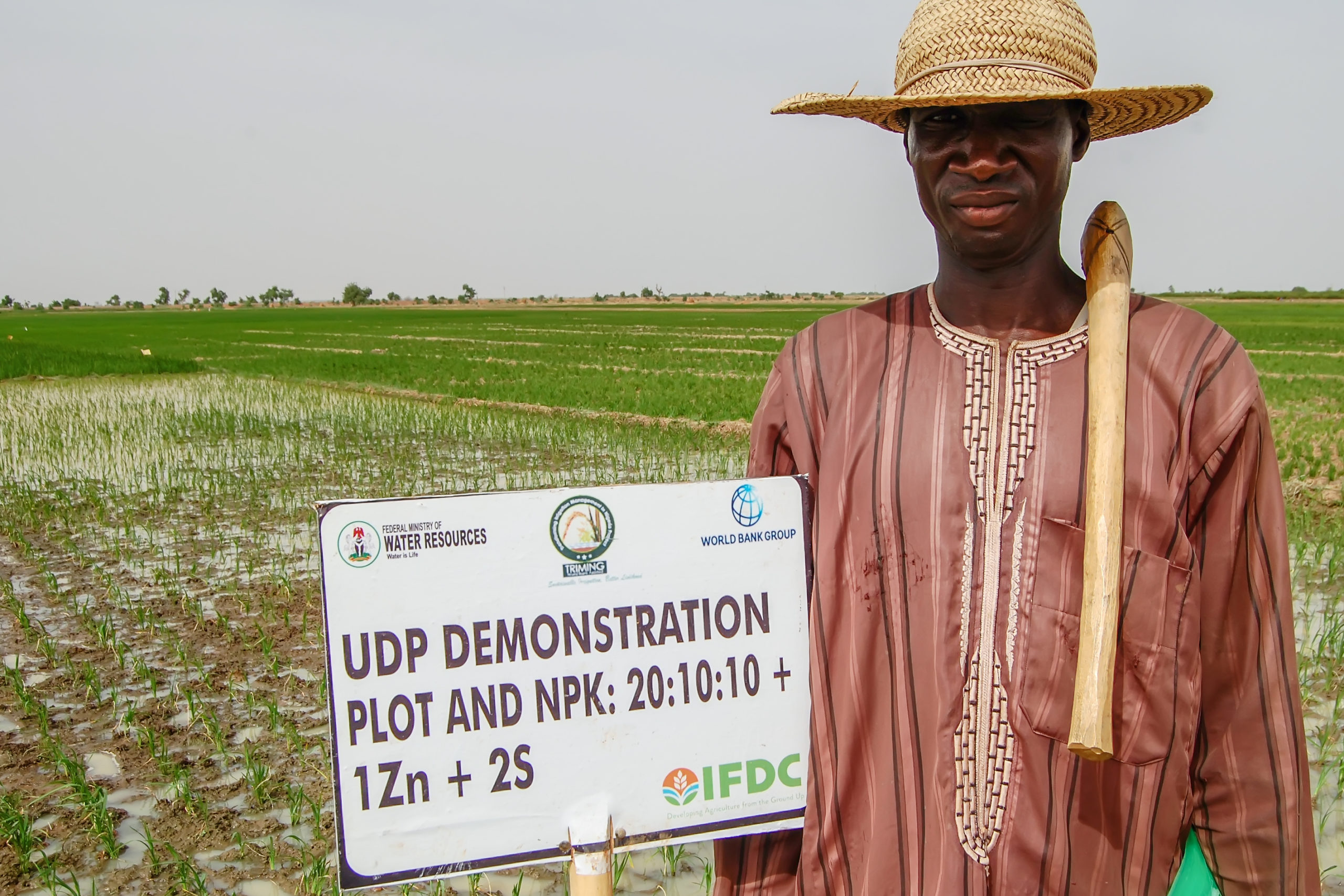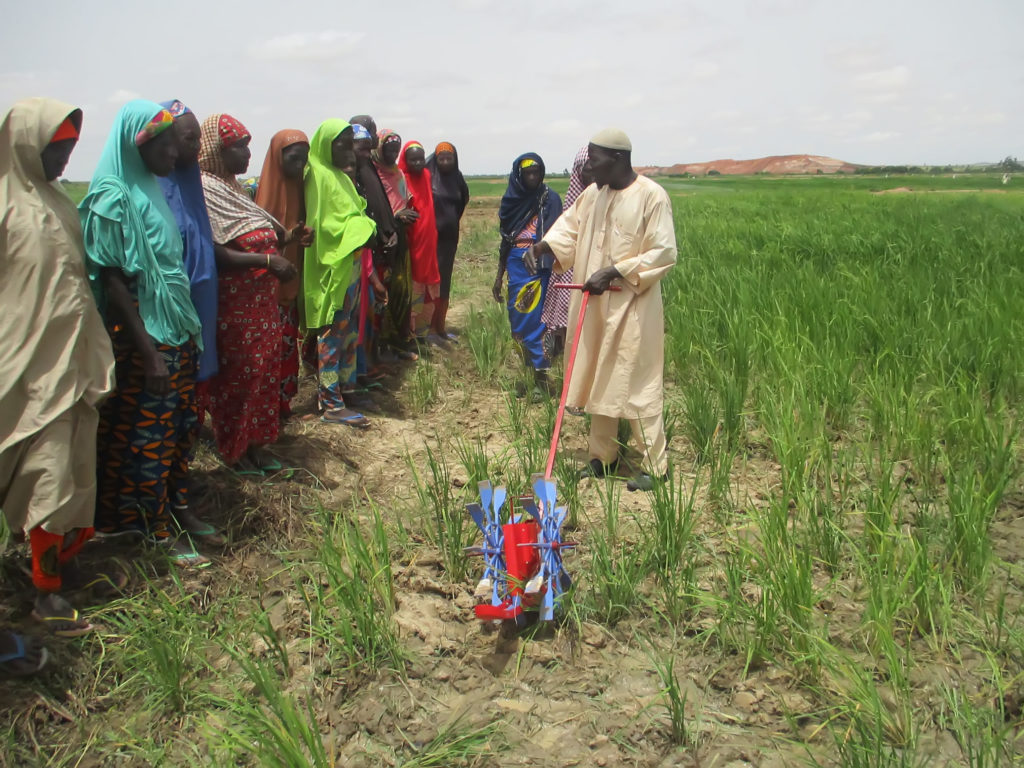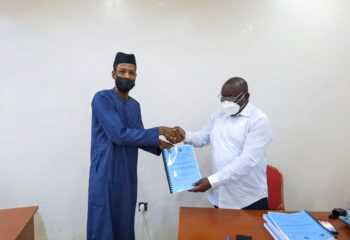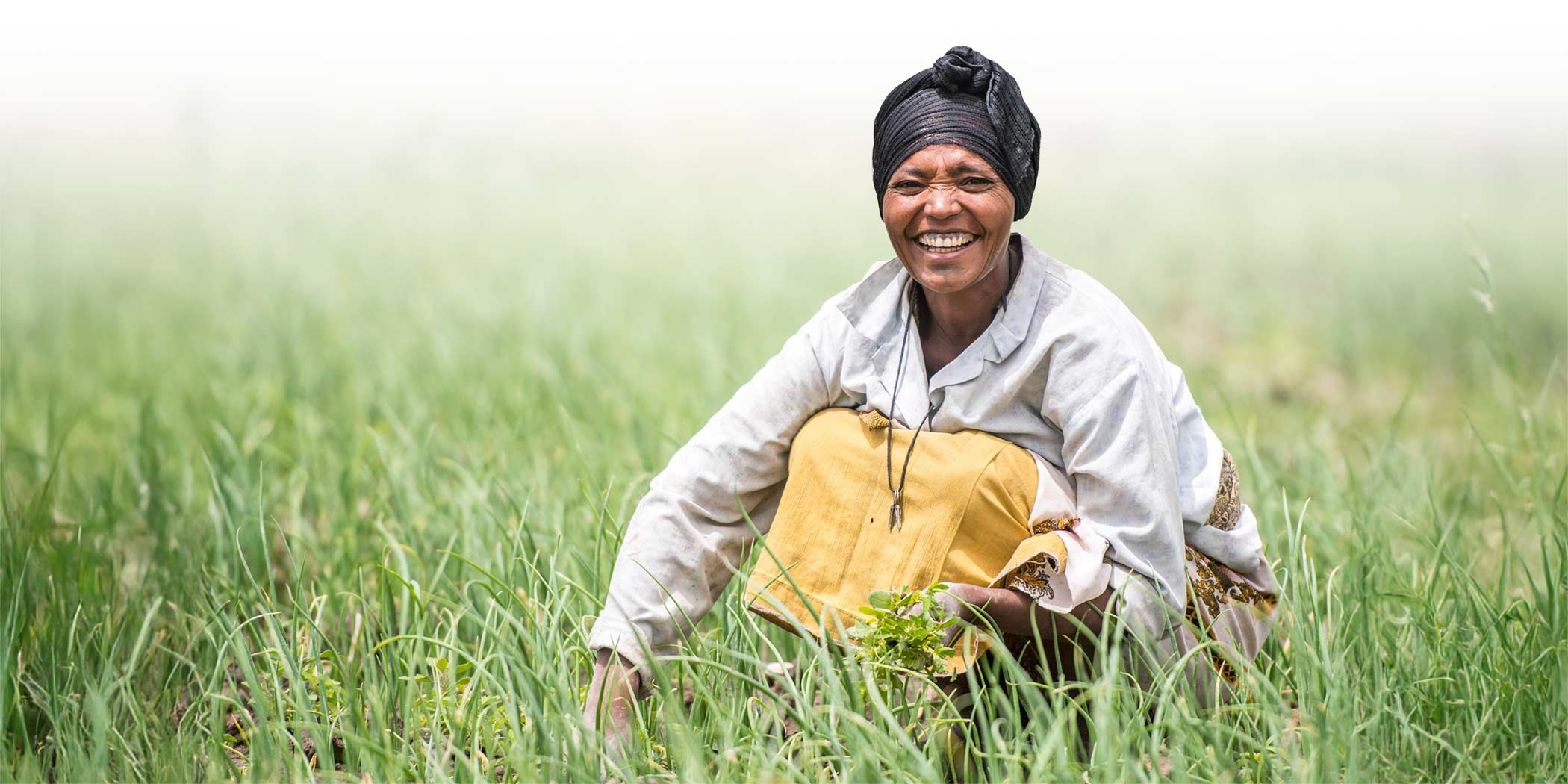
The Extension Service Supervision component of TRIMING assists farmers in four irrigation areas in northern Nigeria to increase agricultural productivity and value addition of targeted value chain crops through the effective supervision of promotion and dissemination of relevant technologies and innovations.
IFDC’s consultancy role (2017-2022) is to provide supervisory extension services to four state-level Agricultural Development Programs (ADPs) and Farmer Field Business Schools (FFBSs) and to introduce and promote modern agricultural technologies, including micronutrient fertilizer blends, urea deep placement (UDP), direct paddy seeders, and improved land leveling.
Funding is provided by the World Bank through the TRIMING project under the Federal Ministry of Water Resources in Nigeria. Implementing partners include the National Agricultural Extension and Research Liaison Services.

Goals Met
- 400 ADPs evaluated.
- FFBS groups evaluated in four focus states.
- 6,000 farmers (15% women, 60% youth) reached by field days.
Project Components
Monitoring of ADP: As one of the key mandates of the project, the IFDC project team conducts regular field visitations to oversee the ADP staff/facilitators’ delivery method to FFBS farmers, confirming that the farmers are receiving quality training (and up-to-date information).
Evaluation of FFBS Groups: Farmer institutional development is intended to improve the production capacities of farmer groups and individuals. FFBS groups have been used as one of the targeted beneficiaries of capacity development interventions.
Introduction of Productivity-Enhancing Technologies: To introduce and showcase the efficacy of productivity-enhancing technologies, the project employs demonstration plots and field days. The demonstration fields are set up close to the FFBS learning fields to allow for good comparisons with traditional practices and easy accessibility to the sites. The project also uses greenfield and brownfield days as platforms to illustrate the benefits of productivity-enhancing technologies to a wider range of farmers, both direct and indirect beneficiaries, making it a powerful testimonial tool.
Results
2022
- Reached 45,771 farmers in the five project intervention states.
- Trained farmers through Farmer Field Business Schools (FFBSs) to boost their productivity, especially for rice, tomato, onion, and maize.
- Established a collaborative approach to link these farmers to input and output markets, as well as financial institutions, strengthening their capacities across the various value chains.
- Promoted nine productivity-enhancing technologies to farmers, with a particular focus on fertilizer deep placement (FDP).
- Increased farmer’s yields by more than 50% to 5-8 mt/ha in various project intervention sites using FDP.
2021
- Facilitated farmers to increase their rice yields by more than 50% to 5-8 mt/ha through the use of fertilizer deep placement.
- Used a collaborative approach to link farmers to input and output markets, as well as financial institutions, strengthening their capacities across the value chain.
- Supervised and strengthened the capacities of Agricultural Development Programs (ADPs) in various areas, including delivery of farmer extension and use of information and communication technology.
2020
- Trained farmers through Farmer Field Business Schools (FFBSs) to boost their productivity.
- Promoted nine productivity-enhancing technologies to farmers, with a particular focus on fertilizer deep placement (FDP). Farmers using this technology increased their yields by more than 50% in various project intervention sites.


